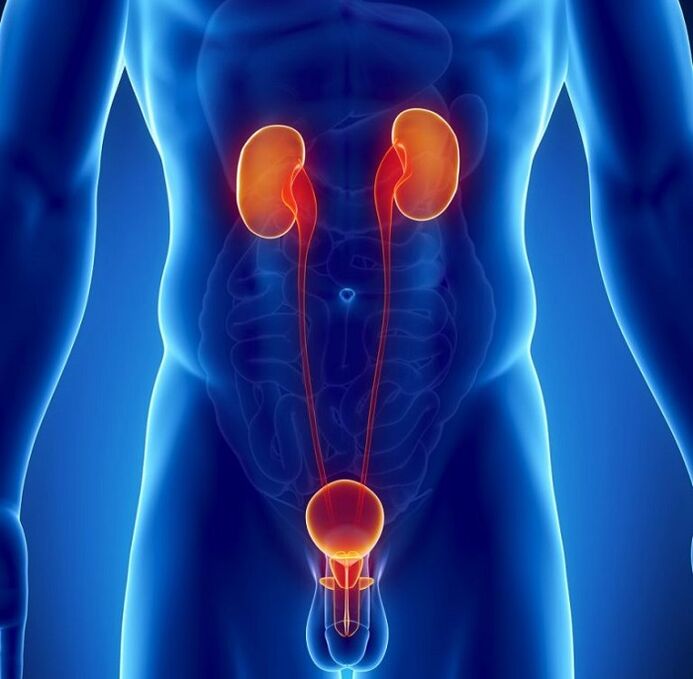When looking to eliminate erectile dysfunction, increase or normalize potency, it is not always clear what potency means and what is considered normal.Looking at the concept as the ability to conceive and please women, men are right.But sexual power includes several other aspects that need to be discussed in more detail.
What is validity?

The meaning of this word is defined as “the ability to perform, produce, create”.It turns out that potency is the reproduction and fulfillment of men's sexual obligations.Sexologists define potency in men as the ability to perform reproductive functions.A rather narrow and applied understanding, characterized by:
- ability to ejaculate with high sperm quality;
- stability of erectile function;
- speed of expression of excitement;
- time of sexual intercourse;
- the ability to achieve satisfaction and please your partner.
In the broadest sense of the word, potency refers to the ability to be sexually active and become a father.Defining the concept by quantity and frequency of intercourse is not entirely accurate, just like sexual desire - these concepts are not synonymous, but are simply components of a man's general sexual behavior.
The components of sexuality: libido, erection, fertility, depend on a number of factors.Especially the level of testosterone concentration in the blood.Male hormones determine desire, fertility and erectile function.The peak of testosterone synthesis occurs at the age of 25-30, but psychologists believe that not every man can boast of high potency during this period.Increased libido and the ability to have regular contact - yes, if the body is normally healthy, but the ability to please a partner and prolong the act is not always the companion of young men.
In addition, erectile function can be affected by negative external factors: stress, moral tension, mental stress.Usually, after 30 years, a man achieves certain financial, emotional and psychological stability, thanks to which fertility also returns to normal.
Potential benchmark index

Once you understand what the potential is, you need to determine the indicators of the index.However, this is difficult because each man has his own characteristics.Some people can maintain an erection for 20-25 minutes, while for others, 5 minutes is too much.
Important!The concept of normal potency in men means that the patient is able to keep the genitals in an erect state throughout sexual intercourse, which does not always end with ejaculation.
The lack of erection under certain circumstances, regardless of the man's wishes, should not be considered a deviation from the norm.This may be the influence of external or internal factors that have nothing to do with sexual behavior.It is impossible to precisely define quantitative indicators, but there are generally accepted gradations:
- Men aged 20-30 must have sex at least 4 times in 7 days;
- 30-35 years old – at least 3 actions in 7 days;
- 60 years old – at least 3 acts in 10-12 days.
These are average indicators compiled taking into account the regular relationships of a normal healthy man.It should be noted that in 69-72% of cases, the effect remains after 60 years.Today, sexologists note that among older patients there are more men, with higher potency than boys 17-23 years old.But diseases that cause almost complete loss of sexual desire are more common in young men under 25 years old.
Important!Basically, the connection between genital size and potency is misleading;Sexual activity does not vary depending on size.The only exceptions are men for whom size is the decisive factor and due to "insufficient length" the man himself refuses a normal sexual life.But if sex lasts less than 2 minutes, this needs attention, especially when this is the male norm and not random premature ejaculation.
Impact on the likelihood of chronic diseases

Some chronic conditions can manifest as reduced erections and decreased sexual desire - key components of male sexuality.Particularly dangerous chronic diseases include dysfunction of the endocrine system and diseases of the pelvic organs.
Three groups of diseases affect potency:
- Pathology of the genitourinary system.These include prostatitis, urethritis, kidney damage due to inflammation and/or infection, and sexually transmitted diseases (STDs).The urinary and reproductive systems are closely interconnected, so any disease causes chronic urinary retention, causes the development of cystitis, nephritis and stone formation.All factors disrupt the synthesis of testosterone, which is manifested in a decrease in male strength.Pathogens such as chlamydia, ureaplasma and gonococci disrupt the microbiota and affect the prostate and adnexa.Lack of treatment can lead to infertility.
- Diseases of the cardiovascular systemleads to irreversible changes in large blood vessels and capillaries.Impaired blood supply causes destruction of the vascular network of the genitals, leading to lack of erection and reduced potency.
- Neuropsychiatric diseases and disorders,This also includes all types of bad habit addictions.Psychogenic impotence is one of the most terrible and difficult to treat diseases.The man loses sexual desire, no longer desires, the emotional foundation is disturbed.Antidepressant therapy has side effects - reduced potency.As for alcohol and drug addiction, in 100% of cases, the disease ends with reduced sexual desire and complete impotence.
Regardless of severity, severe stages, chronic diseases always affect men's sexual power.Complete loss of potency and fertility can only be avoided with early detection of the disease, timely initiation of treatment and maintenance of a healthy lifestyle.




























